Peer Education for Mental Health Throughout Schools in Bitola
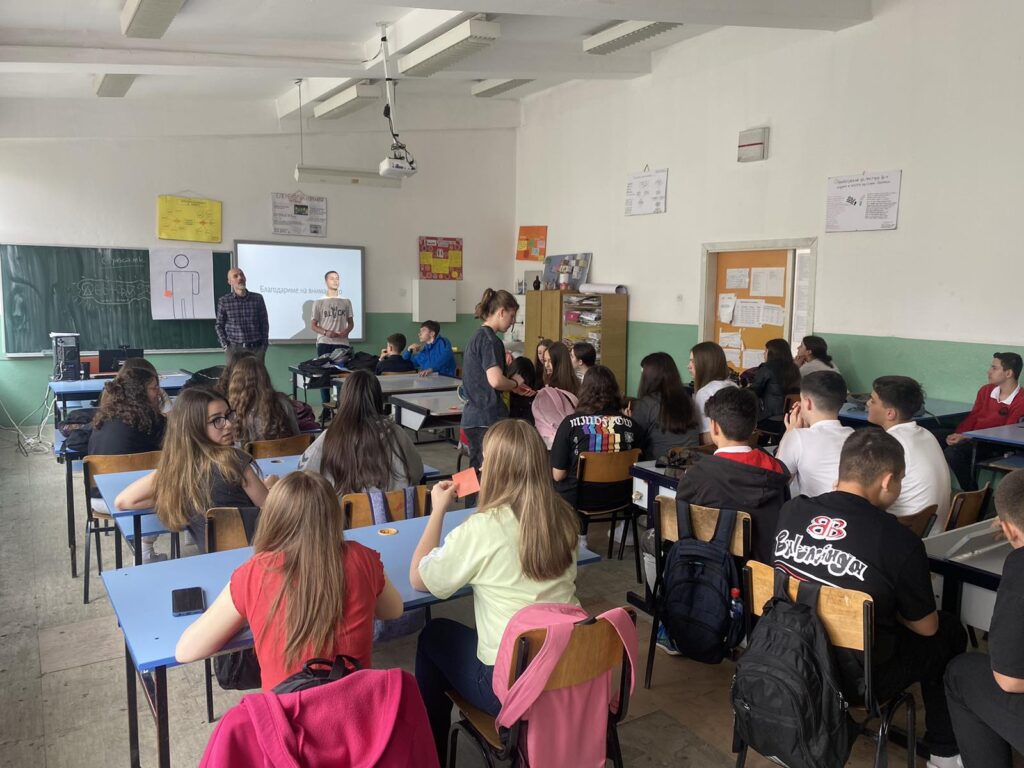
After the completion of six training modules for peer educators, the period began where already trained peer educators shared their knowledge in schools and faculties in Bitola. The workshops for peer educators were attended by 58 peer educators, and about 42 peer educators finished, 41 of whom, as the most motivated in teams, shared their presentations in the field with their peers. More than 2,000 students from almost all elementary (from 7th to 9th grade) and secondary schools, as well as some of the faculties in our city, make it the most extensive peer education conducted in Bitola. Thanks to the pedagogical and psychological services from the schools with which we were in constant communication. The presentations were well prepared by the peer educators themselves and were well received with great enthusiasm during the implementation and often had good feedback from their classmates. It was not always possible to get opinions from the listeners, but with the help of various games and activities integrated into the topic of the presentation, mental health and its importance were brought closer to a large number of young people. The period for the implementation of the presentations was relatively long and from that arose the need for the peer educators to have additional mentoring sessions. Those sessions took place in the Youth Center and were intended for those educators who had already conducted presentations and activities, so they shared their impressions in a common atmosphere with the rest. Personal stories were shared about how they felt during the presentations, what problems they encountered during the implementation, and what kind of attitude they encountered with the teachers and professional services. These meetings helped the peer educators a lot, especially those who were conducting activities of this type for the first time, but they also felt free to express themselves and learn something additional from the more experienced ones. In addition to these additional mentoring sessions, the peer educators proposed to hold additional meetings where it will be possible to participate in something creative, but also to learn something extra. From those proposals came the workshops with creative expression of the messages that the peer educators had already shared among themselves during the peer school in the past period. Here, the peer educators were offered many opportunities for self-expression through the written word, writing verses and singing. With these activities, the Peer School for Mental Health of Children and Youth reached its final stage. The project „Peer school for children and youth mental health“ of the Youth Association YMCA Bitola has been implemented in the frames of the regional program for local democracy in Western Balkans2 Reload2, financed by the European Union (EU), implemented by United Nations Development Program (UNDP). The project is co-financed by the Municipality of Bitola. The project has been implemented by the YMCA in cooperation with Poraka Nova and Amos.
Mental Health workshops for Peer Educators [module 7a and 7b]

The basic workshop modules were six, but due to the large scope of peer education and the length of the implementation period, a seventh module was needed, which was designed to support the peer educators. Therefore, everyone who needs additional strengthening in the area of work with young people and peer education had the opportunity to participate in the so-called mentoring sessions in module 7a, and all those who want to express themselves creatively on the topic of mental health had the opportunity to work on themed songs and music within module 7b. All activities with peer educators took place in the Youth Center. The mentoring sessions or the so-called 7a module were intended for those educators who have already conducted presentations and activities, so they shared their impressions in a common atmosphere with others. Personal stories were shared about how they felt during the presentations, what problems they encountered during the implementation, and what kind of attitude they encountered with the teachers and professional services. There were numerous insights, but some of them were that they were happy and satisfied and that they learned, developed, and strengthened their self-confidence. They were satisfied with the support they received from the YMCA, they expected more support from the schools and they thought it would be great to work with smaller groups of classmates. These meetings helped the peer educators a lot, especially those who were conducting activities of this type for the first time, but they also felt free to express themselves and learn something additional from the more experienced ones. Three workshops were held, the first of which was attended by the Mayor and other representatives of the Municipality of Bitola, where they were introduced to the entire project and current activities in more detail. The third meeting was an introduction to the 7b module – mental health and music imposed by peers. From those proposals came the workshops with the creative expression of the messages that the peer educators had already shared among themselves during the peer school in the past period. Here, the peer educators were offered many opportunities for self-expression through the written word, writing verses, and singing. The guest was Jasna Dimitrovska, a musician, who briefly explained to the participants the planned future activities in the mental health school for children and youth, as well as the connection between music and mental health. The participants in one of the previous modules had prepared several of their songs which were opened in this module and several workshops worked towards creating a song that will be ready for performance at the final event of this school. The project „Peer school for children and youth mental health“ of the Youth Association YMCA Bitola has been implemented in the frames of the regional program for local democracy in Western Balkans2 Reload2, financed by the European Union (EU), implemented by United Nations Development Program (UNDP). The project is co-financed by the Municipality of Bitola. The project has been implemented by the YMCA in cooperation with Poraka Nova and Amos. Read for the previous modules of workshops here.
Mental Health workshops for Peer Educators [module 4,5,6]
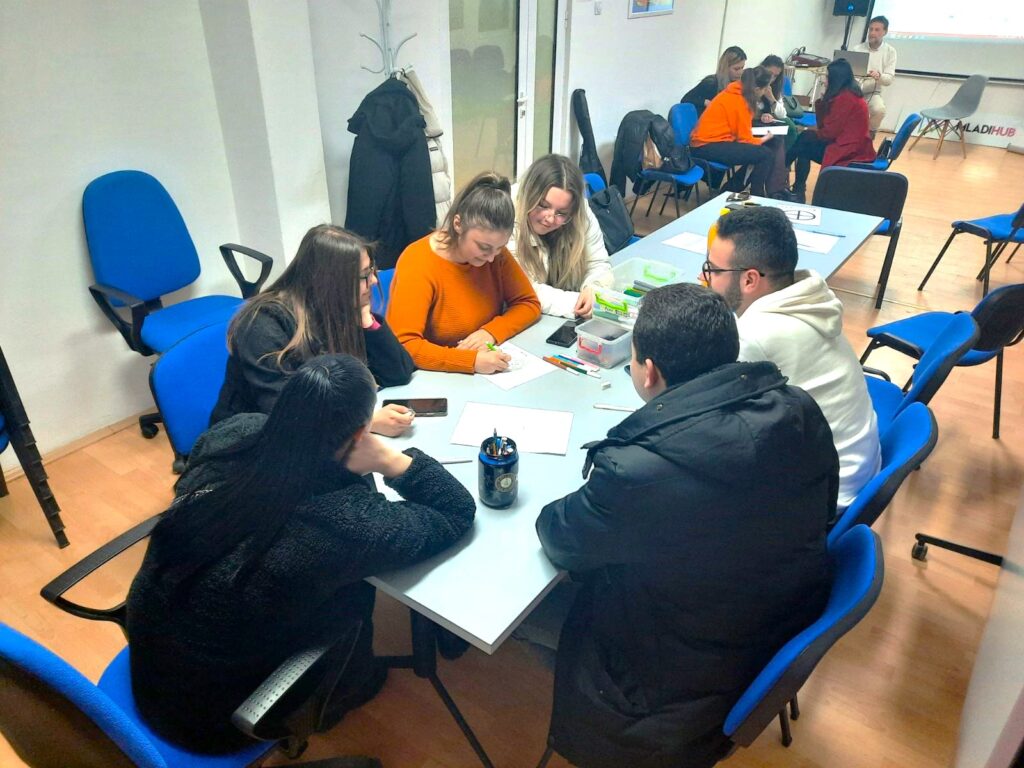
In the second semester, we continue with a new series of mental health workshops for peer educators from primary and secondary schools and faculties from Bitola. Modules 4, 5 and 6 are planned for this semester. In the fourth module, the participants got acquainted with the digital representation of the topics covered in the previous three modules – anxiety, depression, risky behavior and personal endurance or resilience. On each of these topics, it was discussed how they are perceived by young people, how young people approach them and in general how life on social networks affects and shapes the young person in our modern life and what are the positive and negative influences on our mental health. In this module, we also did an exercise for self-assessment of Internet addiction, during which we could jointly discuss the results of the findings. At the request of some of the participants who were not able to attend this training earlier in groups, we made an additional workshop for educators from all groups. This module was completed by 42 peer educators divided into 5 groups of elementary school students, high school students and faculty students who got acquainted with the manifestation of these topics in the digital sphere. With this, we have closed the section on enriching the knowledge of young people on the subject of mental health. The more interesting part followed, starting with the fifth module, which is preparation for the most beautiful part of the activities – sharing knowledge with peers on the ground in educational institutions in the city. Within it, the participants from three groups (faculty students, morning shifts and afternoon shifts, elementary and high school students) of the peer school for mental health for children and youth had the opportunity to recapitulate all the material that they went through in the previous four modules. In doing so, they perceived which of the learned topics they consider more important or useful for their young peers, or for which topic they have particular enthusiasm to share with their peers. We worked on coordination and formation of teams by schools and planning for their responsibilities for the next period. From our side, they received guidance and support on how to put together presentations and choose appropriate activities for the next phase when they will share some of the new knowledge with their peers from the schools and faculties of the city. We believe that the knowledge supplemented with practical activities will strengthen what has been learned among peer educators, and among students across the city, we will help bring and demystify the topic of mental health to everyone. This module was completed by 47 peer educators, 3 groups of elementary school students, high school students and faculty students. In the sixth and final module, we offer teams of peer educators a unique mentoring experience in a supportive environment to receive feedback on their presentations. This is where peer educators come with their presentations, share them with other peer educators and where they can try them out and practice and get feedback on the “homeworks”. This will help them to continue working on improving them in order to make the next and most beautiful stage of sharing knowledge in schools less stressful for the peer educators and more interesting for all students. Peer educators from all groups of elementary school students, high school students and faculty students who are determined to share the acquired knowledge with their peers in practice participate in this module. This module is still being implemented, the teams are being built, coordinated, working on their presentations, coming for consultations and mentoring, and as soon as everyone is ready, we will update the text with figures and the final number of peer educators and teams per school in the city. The project „Peer school for children and youth mental health“ of the Youth Association YMCA Bitola has been implemented in the frames of the regional program for local democracy in Western Balkans2 Reload2, financed by the European Union (EU), implemented by United Nations Development Program (UNDP). The project is co-financed by the Municipality of Bitola. The project has been implemented by the YMCA in cooperation with Poraka Nova and Amos. Read for the previous modules of workshops
Mental Health workshops for Peer Educators [module 1,2,3]
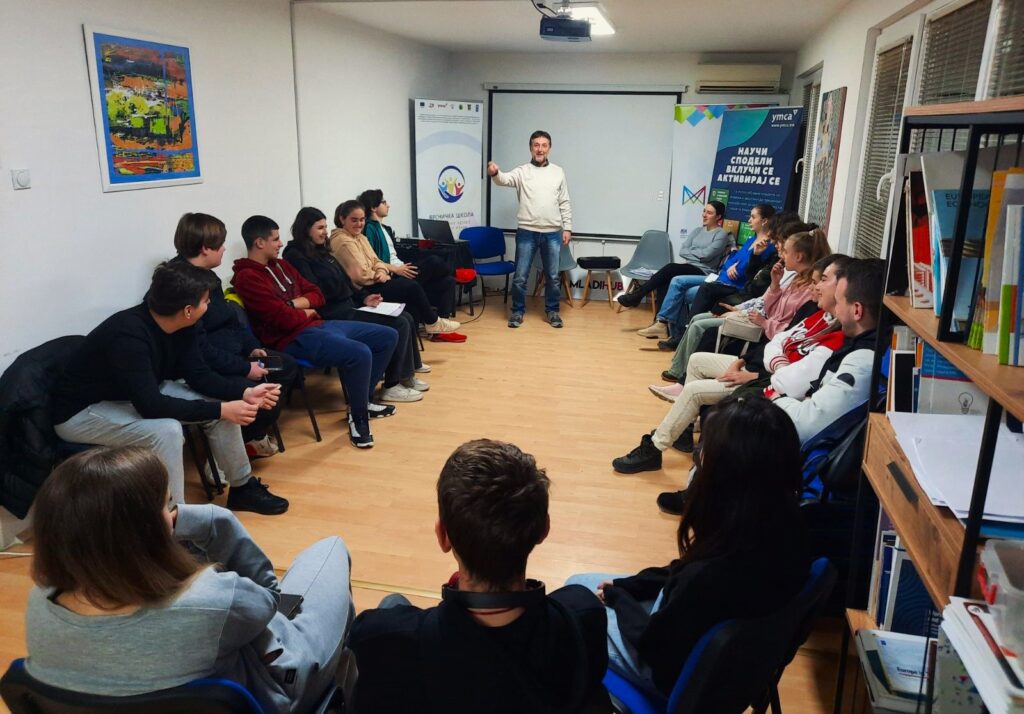
Throughout November and December last year, we implemented a series of workshops on mental health topics for peer educators from primary and secondary schools and faculties from Bitola. The first mental health workshop module was on the topic of anxiety and depression. According to experts in the field of psychological sciences, anxiety is a condition associated with the feeling of fear, and depression is a condition associated with the feeling of sadness. Recognizing them and developing personal strategies to deal with these conditions is what is necessary to maintain harmonious mental health. 58 peer educators divided into 5 groups of primary school and high school pupils and university students who were introduced to the topics of anxiety and depression completed this module. These topics were discussed including what they mean to young people’s conditions, what factors cause them, what the symptoms are, and how to help others and ourselves. The second module of mental health training was on the topic of risky forms of behavior. It was discussed what risk and risky behavior mean, how that behavior is related to the mental well-being of a person, what factors cause it, why it is a particularly significant phenomenon among young people and how young people can recognize the beginnings of risky behavior in themselves so they can help themselves and to recognize it in others. This module was completed by 48 peer educators divided into 5 groups of primary and high school pupils and university students who were acquainted with the topic of risky forms of behavior. During the training, it was discussed what these types of behaviors mean and how they manifest, how much they are present and in what forms in our everyday life in the schools of the city, how these conditions affect young people, what factors cause them and how we can help the others and to act preventively. The third module of mental health workshops was on the topic of building resistance, endurance and resilience. It was discussed what resilience means, how it is learned and how this ability is the most important factor in maintaining psycho-physical balance. This ability is the one that gathers our energies and directs them towards what makes the most sense at the given moment to overcome the situation we find ourselves in, survive and transform the experience we find ourselves in. This is what young people can learn to help themselves and help others. 42 peer educators divided into 5 groups of primary and high school pupils and university students who learned about the topic of building resistance, endurance and resilience completed this module. The peer educators discussed the ways to become resistant to ubiquitous negative influences in the external environment and surroundings, how to endure or cope with situations in which we are involved with or without our will and understanding ways to build lasting resilience and peace with self and others. The project „Peer school for children and youth mental health“ of the Youth Association YMCA Bitola has been implemented in the frames of the regional program for local democracy in Western Balkans2 Reload2, financed by the European Union (EU), implemented by United Nations Development Program (UNDP). The project is co-financed by the Municipality of Bitola. The project has been implemented by the YMCA in cooperation with Poraka Nova and Amos.
Beginning of the peer school for mental health of children and youth
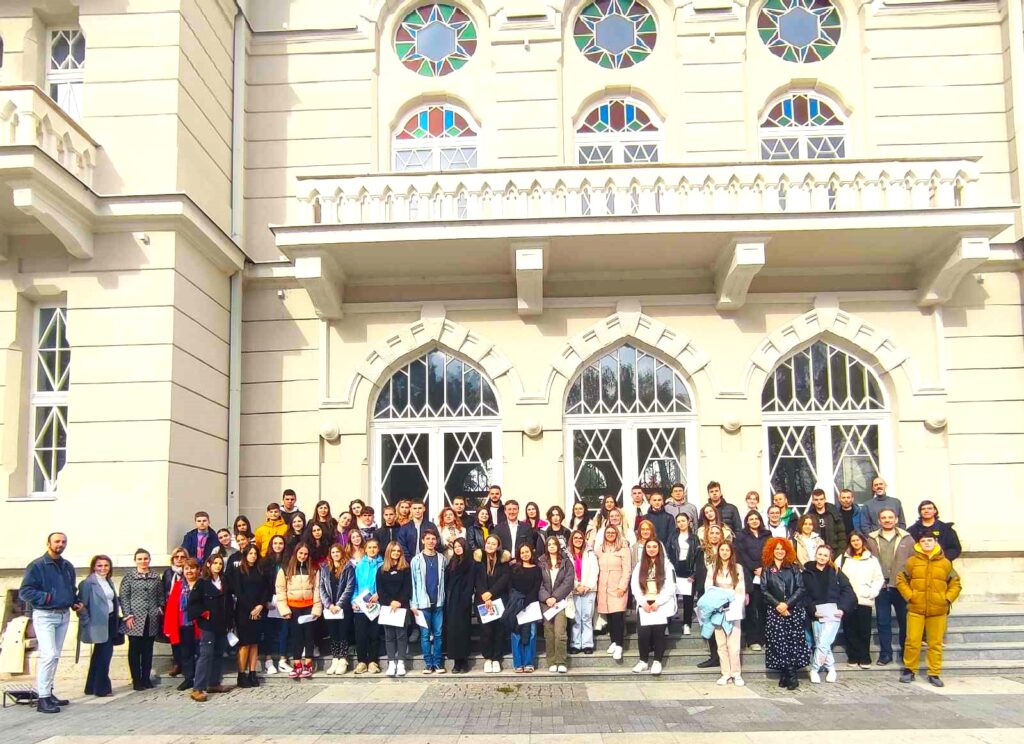
One of the most important elements of the project is the peer school itself, through which we plan to make a significantly large outreach of the topic of mental health. In the second half of September and October, we worked on the animation of the Bitola educational institutions with a focus on primary and secondary schools, as well as faculties. During this period we promoted the projects’ open calls and recruited elementary and high school students, as well as university students motivated to learn more about mental health for themselves and their peers in terms of recognizing certain conditions, but also how to act to help themselves and their peers from the community. We are done with this phase and it is time for action! Today’s event was just that. We gathered all peer educators, psychologists, pedagogues, and others from the professional services of the schools to mark the beginning of the project followed by an interesting program. The event introduced the participants to the planned activities and dynamics for the next period until the end of the school year. The distribution of peer educators’ groups was made based on age/generation and shifts of school to better plan the upcoming workshops in the direction of not missing and disrupting the regular teaching of schools and students. We formed five groups of peer educators, two of them with elementary school students, two with high school students and one with students. The groups had a series of tasks that they had to go through and familiarize themselves with the topic, get to know their peers with whom they will work in the next period, build their group identity and answer the introductory research on the topic to understand the their initial state on the topic of mental health. We also discussed the established channels of communication for the next period and all the formalities required for the smooth running of the upcoming workshops. The workshops will be based on the principles of non-formal education and will take place in the Youth Center in Bitola until the end of February. The peer educators will learn more and discuss with their peers about mental health covering topics such as: anxiety and depression, risky behavior, which means – violent behavior/peer violence, self-harm and substance abuse, building resilience and self-confidence among children and young people and the digital representation of the same topics related to the behavior of young people on social networks. The project has a follow-up phase in the second school semester where these peer educators will implement peer education workshops in their schools and faculties and share the gained knowledge with the end users/their peers in a non-formal setting. The project „Peer school for children and youth mental health“ of the Youth Association YMCA Bitola has been implemented in the frames of the regional program for local democracy in Western Balkans2 Reload2, financed by the European Union (EU), implemented by United Nations Development Program (UNDP). The project is co-financed by the Municipality of Bitola. The project has been implemented by the YMCA in cooperation with Poraka Nova and Amos. Read here to learn more about this project
Mental Health. Deep dive on a grassroots level among young people and adults
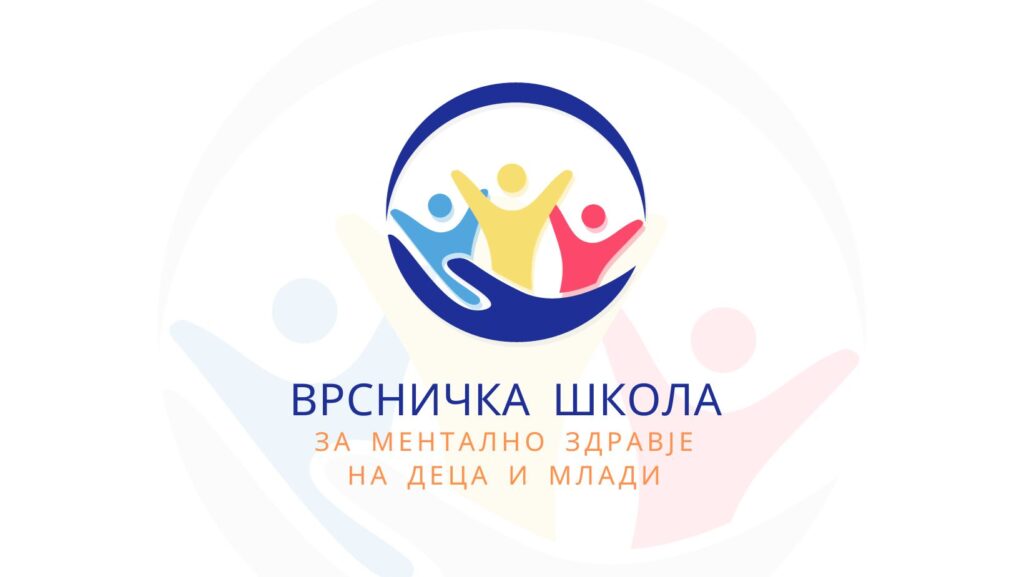
Through peer-to-peer education in working with the youth and initiating support groups in working with adults, this project aims to install proven methods of work when facing challenging issues and/or topics. Peer-to-peer education plays a pivotal role in empowering youth and fostering community development, a mission that aligns seamlessly with our dedication at the YMCA and youth work. The dynamic exchange of ideas among youth not only cultivates a sense of ownership and responsibility among the young people but also encourages them actively to engage with their peers. In a formal context, this method of education can be a powerful tool for building leadership skills and instilling a sense of civic duty. When youth learn from their peers, they can connect on a deeper level, as they often share similar life experiences, challenges, and aspirations. What to expect: In the week ahead we are starting with an open call for peer educators. The workshops will be based on the principles of non-formal education and will take place in the Youth Center in Bitola in the period during the first school semester. The peer educators will learn more and discuss with their peers mental health covering topics such as: anxiety and depression, risky behavior, which means – violent behavior/peer violence, self-harm and substance abuse, building resilience and self-confidence among children and young people and the digital representation of the same topics related to the behavior of young people on social networks. The project has a follow-up phase in the second school semester where these peer educators will implement peer education workshops in their schools and faculties and share the gained knowledge with the end users/their peers in a non-formal setting. The second aspect is initiating the model of support groups in our city to create a more inclusive and supportive community in Bitola as an approach that has provided many benefits in countries across the world. Support groups play a crucial role in offering a lifeline to individuals facing various challenges. For individuals facing disabilities or some life difficulties, support groups foster a sense of belonging and reduce feelings of isolation and provide a vital source of emotional and practical assistance. They offer a safe and understanding environment where members can openly discuss their challenges, share experiences, and exchange coping strategies. These gatherings provide a safe space for individuals to share their struggles, aspirations, and personal stories to empower participants to face challenges head-on and build a strong support network that lasts a lifetime. Moreover, support groups for people with disabilities serve as a platform for advocacy and awareness. These gatherings amplify the voices of those who often face societal barriers and discrimination. What to expect: In the coming period two support groups will be established, one for the challenges facing single-parent families, and another for families of persons with disabilities who have a child or young person in education. In particular, these two vulnerable categories of people are at greater risk of mental health disorders and suffer more pressure from their fellow citizens and peers due to insufficient awareness of the problems they face (reduced social status due to poverty, stigmatization and avoidance, insufficient awareness). Due to that increased social pressure (which regularly finds support in the stereotypes and prejudices of the local community) and discriminatory behavior (not only between peers but also between older people, in the services, etc.), the probability of the problems they are already facing increases. These groups will involve the inclusion of parents (of the affected two categories of children) to share their experiences among themselves, with the peer educators and the professional services in schools. In addition, parents of peer educators and educated assistants will be invited, as well as other parents who will become familiar with our project through the Parents’ Councils in schools and will be invited to attend these groups. To implement this we have partnered with Poraka Nova and Amos who have experience in this impactful approach. These groups will meet and work at the Poraka Nova premises. An additional added value of influence from support groups both in terms of the project and for the city of Bitola will be the connection of the work of these groups with some of the services that are already offered at the level of the Municipality of Bitola for the prevention of social problems – those of single and one-parent families, as well as those related to the families of persons with disabilities. However, our project aims to call on civil society organizations to take a greater part in the future as well, through the Youth Center, which will enable educators of this type to network and cooperate, because this will strengthen their work and add to their recognition in the public. The project „Peer school for children and youth mental health“ of the Youth Association YMCA Bitola has been implemented in the frames of the regional program for local democracy in Western Balkans2 Reload2, financed by the European Union (EU), implemented by United Nations Development Program (UNDP). The project is co-financed by the Municipality of Bitola. The project has been implemented by the YMCA in cooperation with Poraka Nova and Center fo Human Rights Amos. Read here to learn more about this project
PROJECT: Peer School for the Mental Health of Children and Youth
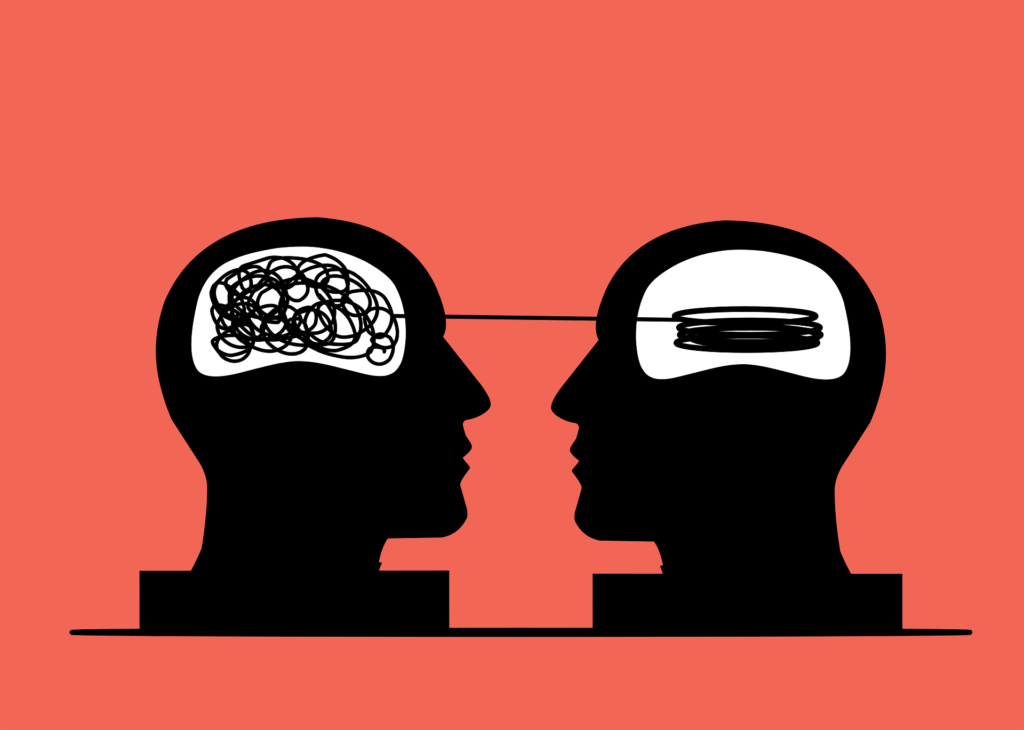
The project comes as a logical result of the fact that in Bitola the subject of mental health have not been dealt with in a systematic way, but only ad-hoc and in the short term. In addition to this and before Covid, but especially now, we see a huge need to provide support primarily to our youth, but also other vulnerable categories of citizens (single parents and people with disabilities) with a long-term project for non-formal education aimed at preserving mental health. In addition to this, based on the findings of recent research (Coalition SEGA 2021, MOF 2021 and Institute for Human Rights on Peer Violence 2022) young people from the Pelagonia region are among the most dissatisfied with the quality of life. By city, young Bitola residents are the most dissatisfied with the quality of life, and by gender – boys are more dissatisfied than girls. The aims of the project: 1. Animation and training of young people from primary and secondary schools as well as the faculties in Bitola to serve as peer educators for mental health. In addition, to implement peer education in all educational environments from where they come in the direction of recognition, prevention and adequate handling of psychosocial problems among young people. 2. Formation of two groups for providing support to single-parent families and families with persons with disabilities, as well as to serve as resource groups to share personal experiences to strengthen the capacities and empathy of educational assistants, school professional services and citizens’ associations. 3. Creating a manual of practical guidance useful by all those working with young people experiencing psychosocial problems. As part of the topics we will address topics significant for the mental health of young people such as:– Anxiety and depression– Risky behavior, which means – violent behavior/peer violence, self-harm and substance abuse– Building resilience and self-confidence among children and young people– The digital representation of the same topics related to the behavior of young people on social networks. The following results will be provided within the project: 1. Training for peer educators that will take place in the first half of the year at the Municipal Youth Center intended for 8th, 9th graders in primary schools, high school students and students [58 peer educators in 5 groups] 2. Peer education will be implemented by peer educators for all generations of students in all primary and secondary schools, as well as at colleges in Bitola [reach 4.120 young people]. 3. Two support groups on this topic for single-parent families and families that have a child with a disability involved in education [2 groups with 12 people each]. 4. Creating a manual with practical experiences and guidelines for all those who work with young people having psychosocial problems. We believe that this project will open more systematic processes and open discussions about the mental health of young people in the schools and faculties as well as other institutions in Bitola. Also, we believe the project will contribute to reducing the stigma for people facing psychosocial problems and will lead to greater acceptance and greater empathy among young people in Bitola. The project „Peer school for children and youth mental health“ of the Youth Association YMCA Bitola has been implemented in the frames of the regional program for local democracy in Western Balkans2 Reload2, financed by European Union (EU), implemented by United Nations Development Program (UNDP). The project „Peer school for children and youth mental health“ of the Youth Association YMCA Bitola is co-financed by the Municipality of Bitola. The project has been implemented by the YMCA in cooperation with Poraka Nova and Center fo Human Rights Amos.
Тraining in Plovdiv on NLP: Unlocking the Potential of the Mind
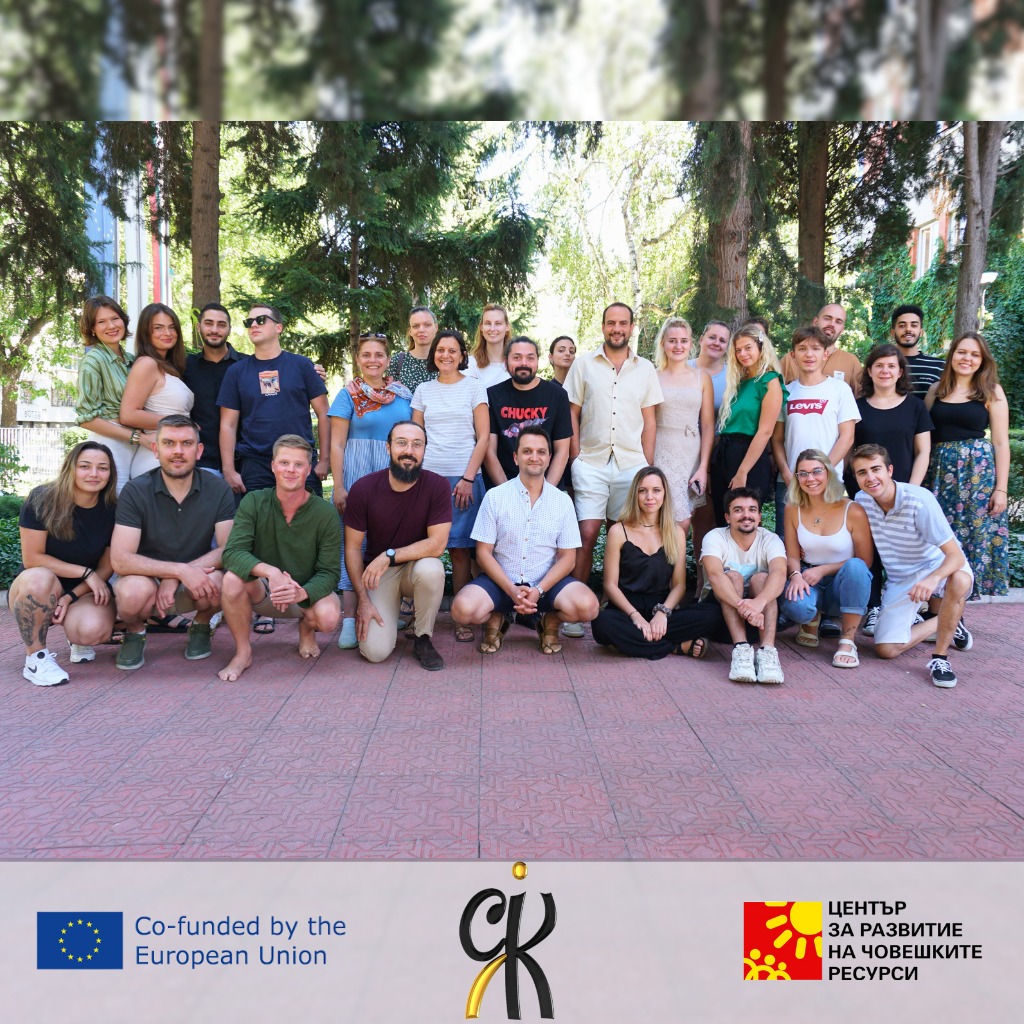
By Jove Krsteski It is known that Neuro-Linguistic Programming (NLP) is a methodology that investigates the dynamic relationship between language, neurological processes, and behavioral patterns. It is a versatile approach that offers understanding of human behavior, communication, and personal development and also practical techniques for enhancing personal growth, improving communication, and bringing positive change by understanding connections between thought patterns, language use, and the subjective experience of the person. From 31 August to 10 September 2023 in PLovdiv, Bulgaria was held a training course named “NLP – New Language Practice” that was based on Neuro-Linguistic Programming exercises. It was organized by Kibela Association in cooperation with Smokinya Foundation and Human Resources Development Center from Bulgaria, and was co-funded by the European Union. In this training there were participants from Bulgaria, Spain, Serbia, Poland, Macedonia, Latvia, Italy, Hungary, Greece, France, Estonia and Czechia. If we recapitulate what we got from this training, we can say that much of the basics in the NLP theory practice was broadly elaborated, and we had a lot more time to work with the practical exercises that were given to us. Speaking more concretely, in the theoretical part, we went through the basic meta-model of NLP (as explained by Bandler and Grinder, 1975) and then we elaborated it more with the “third generation model” of interlinking between physiological cues, language and cognitive characteristics. We had a chance to briefly familiarize ourselves with the 5 “R” in a setting (the Resources we have and use as an input in the ‘situation’, then the Roles that are played, the Relationships that are happening, the Rules that need to be followed in order this to be a proper ‘situation’ and at the end, as output the Results). In this manner, certain roles we need to know are the ones that are part of the learning trio of ABC, where “A” is talking/sharing, “B” is learning/listening and “C” is observing/observer. Once a ‘setting’ is established, the main philosophy of everything is that whatever we observe, our interpretation of it is something different (this is also elaborated as the ‘event’ vs. ‘story’ difference in any given situation). This was brought to us alongside the main NLP idea that the “map is not the territory”. The most interesting input here was the fact that “the most flexible part of any system is usually the part that controls it”. Calibration of our input/output was also mentioned, calibration of what we bring to a situation as well as what we take, or recieve. This was recapitulated after a few days as points of observation that the theory gives (see flipchart). The representational systems of the personality were also elaborated (the Visual, Auditory, Kinestetic were mentioned in “NLP Volume 1” from Dilts, Binder, Grinder and DeLoiter from 1980, but also the Digital was included later in the training.) The eye accessing cues viewpoint was also mentioned. From the more psychological standpoint was the schema presented of how unconscious/ unconscious can be seen in relation to what competency and incompetence are, and alongside with this, the “presuppositions” were elaborated regarding the information that is implicit in a communication that is happening in a setting. Next part of the training was exploration of what the proper attitude of a coach should be, as well as the competences he has to have (see flipcharts), around which a discussion was held. After that, the training offered us a lot of space to practice. We formed trios and had a chance to see and later on experiment with several practical tools. Several conversational techniques were offered for practice (backtracking, lazy coach, reflection on feeling, shooting from the hip) that are used during dialog and help facilitate certain objectivity. Then, we familiarised ourselves with the “hoponopono technique”. Also, we had a specific instructor that gave the opportunity for us to practice our voice, tone and verbal expressions. With this, the whole VAK representation in the participants was satisfied, since we used a lot of schematics in flipcharts for explanation – for the Visuals, this with voice training – for Auditory, and the whole set of dedicated space and time for practice was – for the Kinestetics/ Digital ones. And of course, the more typical practicalities for NLP were also present; the rapport, the anchoring and the reframing approaches. It was also explained how we can use a timeline as a technique for elaborating on personal issues, and also one of the participants offered technique for working with our personal limiting beliefs. Neuro-Linguistic Programming offers a treasure trove of practices and techniques for enhancing communication, managing emotions, and transforming one’s perspective on life. Many of the NLP practices empower individuals to connect more deeply with others, take charge of their emotional responses, and break free from limiting beliefs. By incorporating these practices into their lives, individuals can embark on a journey of personal growth, self-discovery, and improved relationships, ultimately unleashing their full potential. This is true and useful in a psycho-therapeutic context, but also in the field of youthwork. Many of the techniques can be modified to serve as tools for empowering youth workers. It certainly helped me to learn more and become more aware of the usefulness of the conversational techniques and the benefit they have regarding the mutual working context between youthworkers and young people, especially if we have in mind that young age is the age of personal development. All techniques that bring more clarification INTO CONVERSATION are of benefit. But also, this training brought together so many participants from different ages and life experiences, a mix that was so beneficial and added more to the group learning experience we all had. I felt satisfied at the end and enjoyed this learning experience, which helped me to see how useful all of these techniques can be for working with young people.
Peer education for primary and high school students
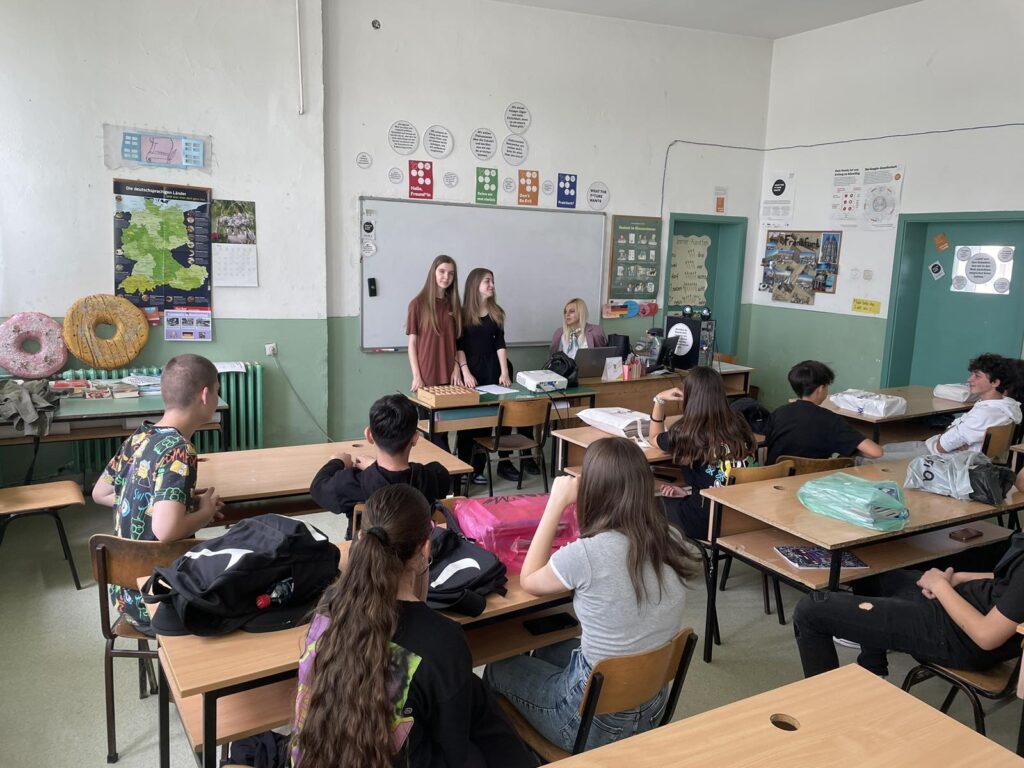
The activities in the project “Stop discrimination of persons with disabilities” entered the next phase in May and June with the application of the acquired knowledge and the implementation of peer education in the involved primary and secondary schools in Bitola. Trained peer educators gave all planned presentations to their peers in the schools where they study. Anastasia held her presentation at Kliment Ohridski school, Leona and Christian at Elpida Karamandi school, and Marta and Michaela at Kole Kaninski school, as far as elementary schools are concerned. While for the secondary schools, Brankica and Angela conducted their peer educations at Taki Daskalo vocational school, and Ivan and Leona at Jovan Kalauzi medical school. The focus of all presentations was on discrimination and intolerance as behavior that creates discomfort in communication and understanding of other people. All the exercises and activities that the students shared with their peers were aimed at the listeners putting themselves in the other’s shoes and feeling what it’s like to have some kind of limitation in everyday life. With that, the peer educators enabled the classmates to have a practical experience of what it looks like when you are disabled in something and thus encourage awareness of the diversity that everyone has. In this way, a better understanding of the everyday life of students and other persons with disabilities was enabled. Then there were conversations and discussions about the impressions of the exercises and activities. The total number of students who were present at these presentations was about 150 students in 6 classes. This is the end of another phase of this project which will continue with sharing of the experiences that the peer educators had during their training, as well as the sharing of a small survey related to these topics. With the project “Stop the Discrimination of People with Disabilities”, we raise awareness of the existence of discrimination in all spheres of life in our society and indicate the regulations that help to reduce it in the future. The project is supported through small grants from the anti-discrimination program of the Macedonian Center for International Cooperation – MCMS, financed by the European Union and implemented by Poraka Nova, in cooperation with YMCA. The peer-to-peer is a methodology that as an organization we will continue to work on in the next period in several topics of interest to young people such as mental health, and personal, social, and career development of children and young people for which we have already secured support, but more for that in some of the following posts on our website. Read here to learn more about previous project activities
Workshops for peer educators and school professionals – Project: Stop Discrimination

During our activities so far, four workshops have been held for students, one for the educational assistants in the schools involved in the project and one for the professional psychological-pedagogical services. The four workshops were attended by 12 students who were ready to take on the role of peer educators on the topic of non-discrimination of persons with disabilities. The topics covered at the first workshop were general and addressed general human rights and children’s rights in particular. The second workshop was about the concept of discrimination and the habits that cause this phenomenon, such as prejudices and stereotypes. At the end, they talked about the way discrimination can be overcome and that is through tolerance. At the third workshop the topics of disability and discrimination of people with disabilities were discussed and the students also prepared their initial draft ideas on how they will perform peer education for their classmates. In the last workshop we talked about the types of violence and the protection against discrimination. Also, the ideas for the students’ presentations were deepened with the help of the instructors giving the students the opportunity and creative freedom to express the material they had prepared to the best of their ability. With that the small cycle of trainings intended for the students was closed and it was followed by Workshop intended for educational assistants who work in schools with people with disabilities. Considering the current reform in our educational system where greater inclusion of these persons is introduced in the educational process, this training has met with great interest among educational assistants. Many questions were raised and the assistants took the opportunity to express their views, opinions and insights about the various processes that take place in education, especially in the part of their work engagement in schools. At the workshop, the same topics were discussed with them as with the students, but in a more condensed form and at a higher level. The last of the planned six workshops was held this week. It was intended for the professional services of schools in Bitola and covered the topics of legal regulations related to protection against discrimination of persons with disabilities. Professional services had the opportunity to familiarize themselves with these legal regulations through a presentation held for them by a representative from the Commission for Protection and Prevention of Discrimination (CPPD). After pointing out the legal decrees, a case study was also shown where the CPPD acted on a case reported to them with which the professional services had the opportunity to see what the procedures look like when reporting discrimination against a person with disabilities and what are the institutions and procedures that should be followed in the entire procedure. With that the school services had the opportunity to familiarize themselves with the latest and most recent changes in the legal provisions and procedures related to this topic. With the project “Stop the Discrimination of People with Disabilities”, we raise awareness of the existence of discrimination in all spheres of life in our society and indicate the regulations that help to reduce it in the future. The project “Stop discrimination of persons with disabilities” is supported through small grants from the anti-discrimination program of the Macedonian Center for International Cooperation – MCMS, financed by the European Union and implemented by Poraka Nova, in cooperation with YMCA. Read here to learn more about this project